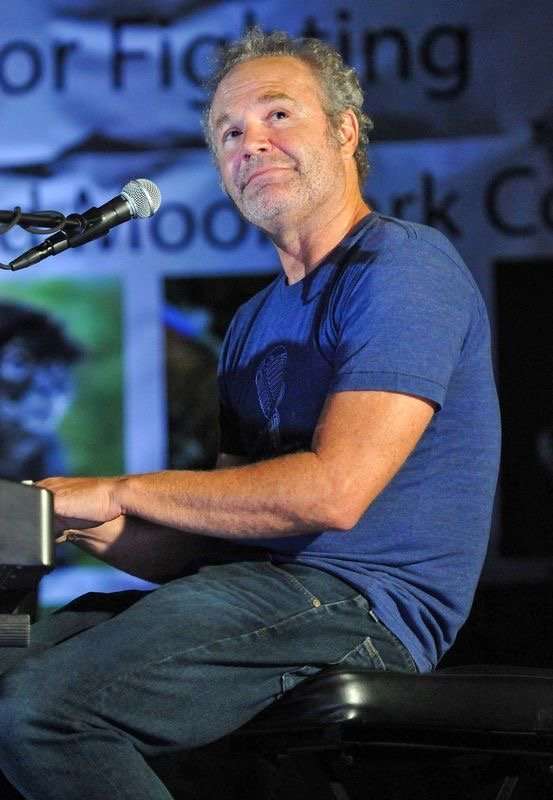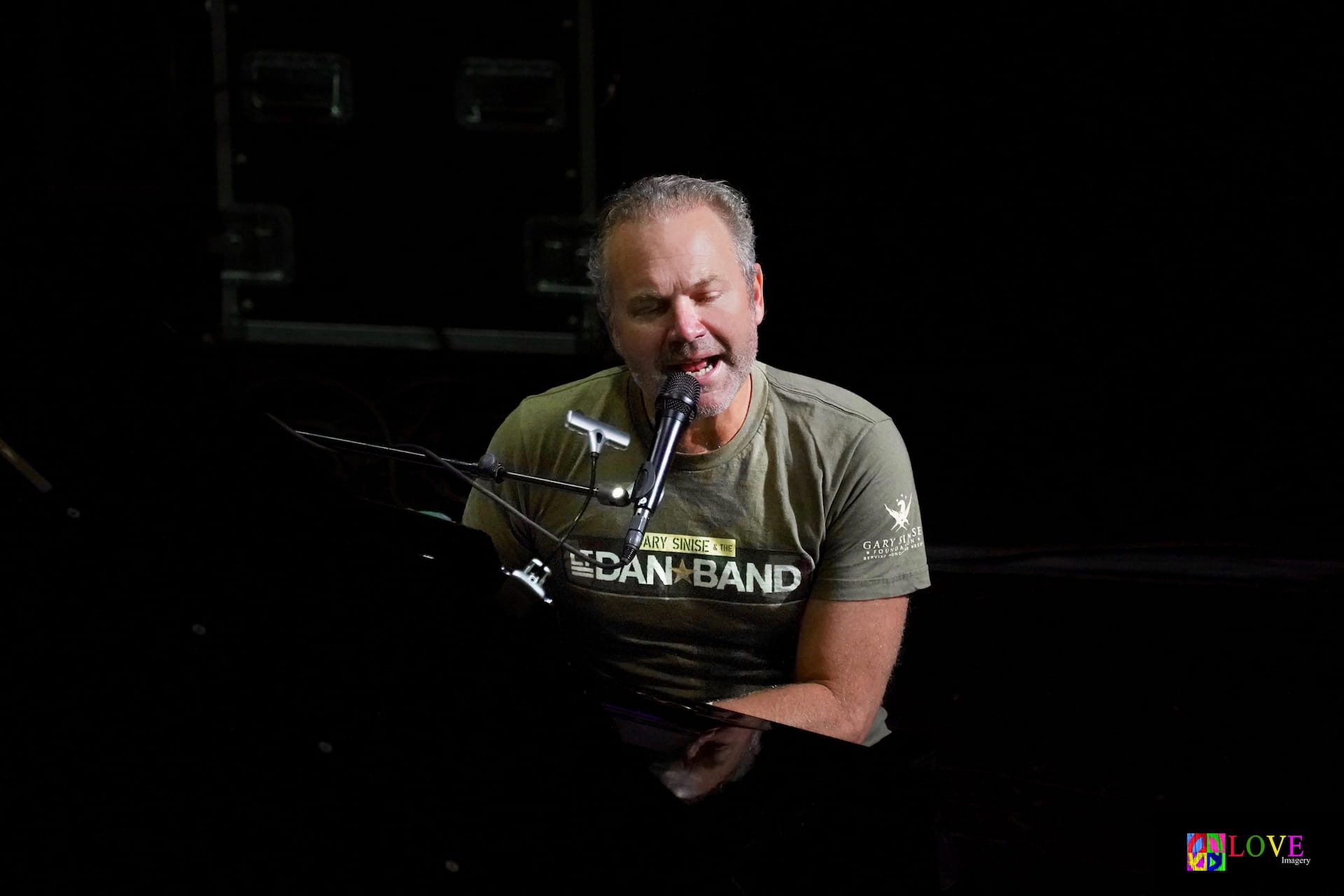Feinstein’s at Hotel Carmichael presents: Five For Fighting With String Quartet
Table of Contents
Date: Thursday, May 19, Friday, May 20, Saturday, May 21
Time: Doors 6:00 p.m.
Showtime 7:00 p.m.
March 2022
Singer-songwriter John Ondrasik has spent the past decade writing deeply personal songs that include social messages, invoke the human spirit and make an emotional connection. With the past six albums by Five For Fighting, the hockey moniker stage name under which he performs, Ondrasik has seen multitudes of successes. Five For Fighting’s breakthrough came in 2001 with the Grammy-nominated song “Superman,” and Ondrasik’s performance at the 2001 Concert For New York at which he performed alongside other big-name artists like Paul McCartney, The Who, Elton John, Billy Joel and dozens more.
Ondrasik proceeded to become part of the American songbook with the iconic hits “One Hundred Years,” “World,” “The Riddle,” “Chances” and “What If.” Ondrasik’s music has been featured in over 350 films, TV shows and advertisements, ranging from “The Blind Side” to “The Sopranos.” In 2018, Ondrasik was the musical voice for the CBS hit show “Code Black.”
Ondrasik has also been deeply involved in supporting our troops. From USO tours, supporting several veteran-oriented charities and distributing over a million “CD for the Troops” to service members and their families around the world.

This past February, Ondrasik was featured on The Miraculous Love Kids’ newly recorded Tom Morello-penned song, “God Help Us All,” along with an all-star lineup of guest musicians—Tom Morello, Victoria Williams, Beth Hart, Julien Baker, Nandi Bushell, Serj Tankian (System Of A Down) and other distinguished musicians. The song was produced by Lanny Cordola and Sarmad Ghafoor. The Miraculous Love Kids is a 501(c)(3) consisting of war-torn, poverty-stricken girls in Kabul, Afghanistan.
Ondrasik is currently working on a Broadway musical, various television projects and a new Five For Fighting album, while giving keynotes across the country to corporations and various organizations.
Don’t miss this exhilarating experience with Five For Fighting! Get your tickets at feinsteinshc.com.
A $25 food and beverage minimum is required for all reserved table seating.
Janelle Morrison: I was listening to “Superman” as I was watching what’s been unfolding oversees [in Ukraine], and I thought, you know, that song is just as relevant today as it was when you wrote it after 9/11.
John Ondrasik: I kind of have the same feelings as I did after 9/11. And you never want to have a song have a place in history based on events like that, but on the other hand, we need songs like that. Music transcends and provides a certain solace and impact that other mediums can’t. And certainly, it’s not just “Superman”—it’s many other songs. The same with “Blood on My Hands”—it’s a different “event,” but it’s the same point. We need songs that basically reflect history through music.
When you listen to the music of the ’60s and the protest songs, you get a sense of history in a way that you can’t get by just reading a book or seeing a documentary. So, it’s really melancholy for me, but I’m glad the songs are there—especially “Superman” because it makes a difference for some people, but some of the reasons why it makes a difference are heartbreaking. I think we’re kind of right back in that spot with Afghanistan and Ukraine. Seeing it on our televisions every night, it just breaks our hearts.
JM: I’m very excited about your three shows coming to Feinstein’s because it is an intimate venue where you really feel like it’s a conversation between the artist and the audience. You’ll be performing your iconic songs, and we’ll be experiencing these thoughts and emotions in community. What is the experience that you hope we have while attending your performances?
Ondrasik: The unique thing about what we’re doing with you guys is that we’re playing three nights in a row, and I never do that. But I saw this come up for this tour, and I was like, “Let’s do this!” It will be great to actually be in one place for a few days—without the exhaustion of traveling—and to get into the music. You can play different songs, experiment with songs, play new songs and do things you don’t necessarily do for a typical three-hour show. With my shows, I just hope people walk away feeling better than they did when they walked in. They may laugh at one of my dumb jokes or cry at one of my songs—remembering where they were almost 20 years ago when they heard “100 Years.”
My shows are family friendly, and I’m grateful for all walks of life, all ages, all ethnicities and all incomes who come to my shows. And veterans are always very welcome at my shows. There’s always a military component—a salute—at my shows.
JM: I’m curious what kind of music will be created and what kinds of songs will be sung depicting the stories of what’s happening now. I’m optimistic that one day, we’ll hear some very powerful stories that will be told through song, highlighting the best of the human spirit. What are your thoughts on that?
Ondrasik: I hope so. I just don’t know. I personally had hoped that there would be a dozen songs about Afghanistan because it was such a human rights travesty that’s continuing as we speak. We live in such a cancel-culture age where people are hesitant sometimes to write things out of fear of being cancelled. I’m concerned about free speech and being able to express yourself without feeling that your livelihood may be compromised. I think it’s a dangerous time. And I tend to be an optimistic person. I think there should be 1,000 songs about [Volodymyr] Zelenskyy, this one man who was a comedian and is now showing the world strength, freedom and all the things that we in the West have valued.
I hope with some of the events that have happened, and are happening, and with this new perspective that most of us have, there will be some artistic projects and powerful stories that will inspire us and show us who we really are. I hope that art and history reflect on them [peacemakers] well, and that we tell their stories.
JM: You were one of several distinguished musicians that collaborated with The Miraculous Love Kids. Can you share more about Lanny Cordola, the group’s founder and director, who recorded a number of songs with the girls, including “God Help us All”?
Ondrasik: You should do a story on Lanny because he walks the walk. There’s a lot of people that like to say things, but they don’t really back it up with action, but this guy—he moved to Kabul, and he’s teaching the girls guitar school, and his heart is just full of love.

JM: While many of us feel helpless against things like pandemic and war and are using creative outlets—like Lanny—to find some kind of release, I find it helps by dedicating some time and resources to causes that are important to me as a way to feel like I’m doing something other than nothing. Care to share your thoughts on how to stay physically/mentally healthy in these times?
Ondrasik: This is a time of high stress and anxiety for all of us. I was talking with my wife about this, and you find yourself watching the news 20 hours a day, and you certainly want to know what’s going on because it’s important, but for your own wellness, you have to take time to escape. You can’t be on your phone all day. You have to get out and get under the sky and move around because it will actually make you better and healthier. So, again, going to a show or picking up a guitar and writing a song—all of those things are probably more critical now than ever. It’s not going to minimize what we’re seeing in the world. Frankly, it heightens it and makes us healthier to fight the good fight and support the causes that are worth supporting.


